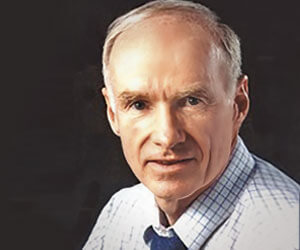When missionaries visit the States and see our opulence, they can’t help but contrast it to the poverty they’ve just left.
But poverty, and riches, are relative. I have two cars. I live in a two-story brick house. I can buy anything I want, within reason. I’ve never known hunger. What should I do if confronted by the poverty of the Third World?
I’ll tell you what I have done. I loan my cars to missionaries when they are home on furlough—and I buy the gas and pay the repair bills. My house stays filled with people in need of ministry. I give a large percentage of my income to support those in ministry and to feed the poor. Ten years ago, my wife Jackie and I moved out of a small subdivision to our present house on 20 acres in a semi-rural setting. By today’s standards we got it at a steal. But for five years both of us lived with a deep-seated guilt because we had such a nice place. That has passed. I simply see my purchase as a wise move. I no longer believe God condemns prosperity. Indeed, I think He desires it for us—as long as we use what we have for His glory.
On the other hand, I too am appalled by what is going on in some sectors of Western Christendom. Extravagance grieves me. Yet, extravagance is relative to culture. Recently I helped deliver an evaporative cooler to a Christian Indian living in a dirt-floored two-room hut in the Mexican desert, that provided him—and the 10 people in his tiny house—a degree of comfort. But in the eyes of his neighbors, it was sheer extravagance.
I admire the way Sen. John D. “Jay” Rockefeller IV approached his job as a volunteer in the antipoverty program with the kind folks of Emmons, West Virginia (population 200), as a Peace Corps worker. “I come from a world that may be different, but you’ll find me serious and caring and wanting to help,’” he told them. Those grateful people later elected him governor—then U.S. senator. That, it seems, put riches in the right perspective.
What has God told me to do? He’s told me to withhold judgment from His servants—to be kind, tenderhearted and forgiving—even if I do not understand.
For instance, God did not tell me to build a splendid university as He told Oral Roberts. But I’m glad Oral obeyed, and I’ve sent him four of my five children to educate.
I’ve looked but I cannot find a single biblical injunction to tear down what others are doing in the name of Jesus. My call? To use the things I control to God’s glory—and allow my brothers to answer to God for the things they control.
Once I spent a week in a Catholic monastery with about 50 of the nation’s charismatic leaders. We were miles apart in doctrine. Some were classic Pentecostals. Some were liberals. Several were Catholic priests. We spend all week listening to each other.
At night, when we finished with the day’s activities, we went down to the kitchen for snacks. Some drank beer, some lemonade. One afternoon I listened to a devoted Catholic scholar tell how Mary encouraged him to love and worship Jesus. The week did not change my doctrine, but it softened my spirit.
I wish some of my friends who are so critical of Catholics would take a week each year, as I do, getting to know these folks and listening to their hearts. Perhaps they would come away as I do, realizing God is bigger than our interpretation of the Bible and that all men who are committed to the Lordship of Jesus Christ are brothers.
As I examine my past critical attitude of the lifestyles and doctrines of others, I realize most of it has come from secondhand knowledge. Recently I sat in a ministry’s conference in Tulsa and heard Kenneth Copeland preach. I’d never cared for Copeland’s approach, but, again, I’d never heard him in person. That night I left the room a mellowed man.
Who is right? One who drives a luxury automobile and whose ostentation seems second only to the Taj Mahal? Or my missionary friend who drives a battered car over rocky Argentine roads and wears threadbare clothes? Who is right?
I suspect, when earth’s last picture is painted, that the bright lights here at home will blend right into the dusty colors painted by my missionary friends, and somehow the picture will come out looking just the way God intended.
Jamie Buckingham wrote 153 columns for Charisma over 13 years, first known as “Dry Bones” but later as it’s most recognized “Last Word.” His singular voice was animated by a heart for Jesus baptized in the power of the Holy Spirit in 1967 at a Full Gospel Businessmen’s convention. Buckingham provided a steadying force during the scandals of the 1980s, penning the seminal article on the PTL scandal, “God Is Shaking His Church” in May 1986.















































